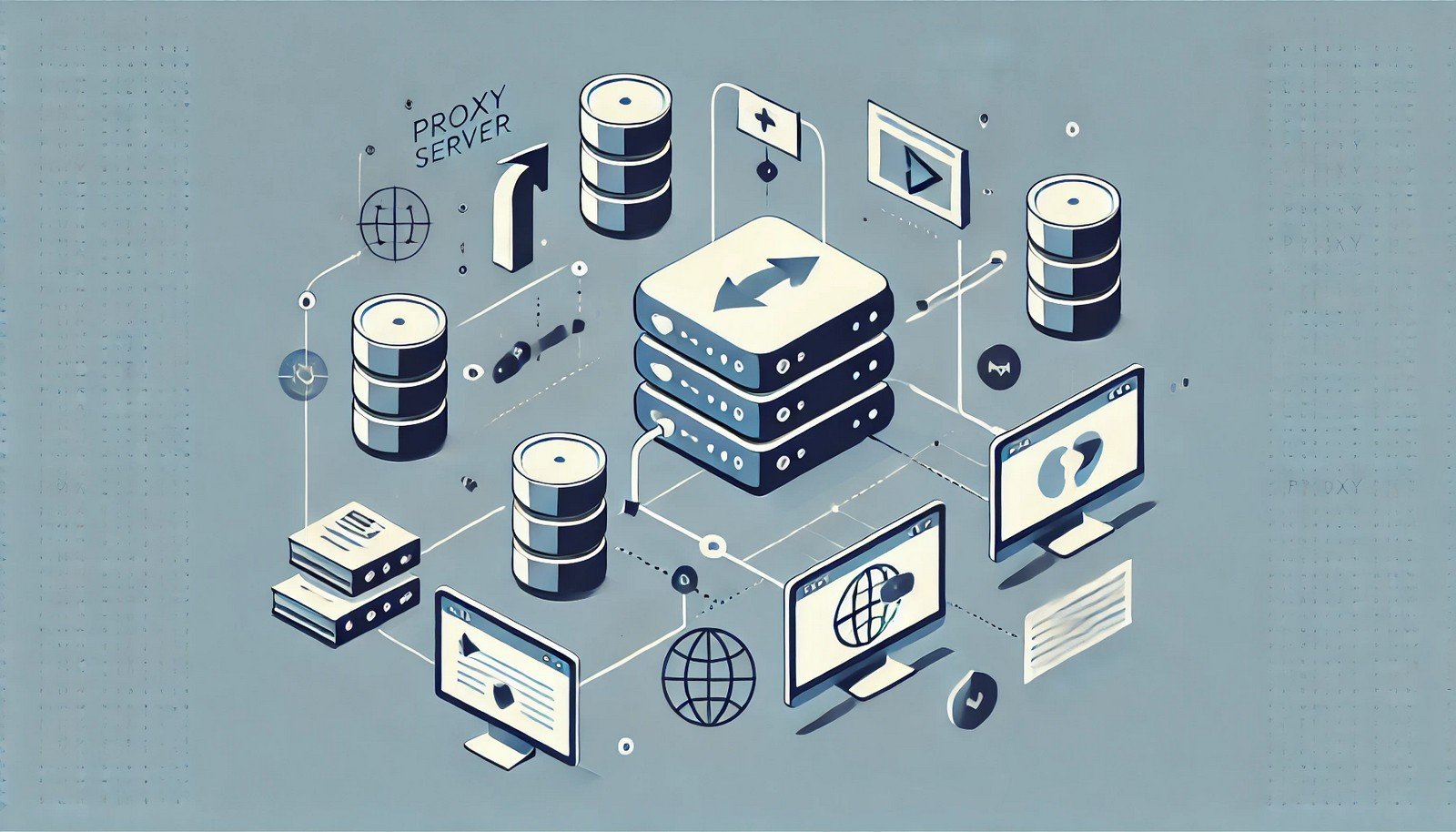Proxy Server
 (Representational Image | Source: Dall-E)
(Representational Image | Source: Dall-E)
Quick Navigation:
- Proxy Server Definition
- Proxy Server Explained Easy
- Proxy Server Origin
- Proxy Server Etymology
- Proxy Server Usage Trends
- Proxy Server Usage
- Proxy Server Examples in Context
- Proxy Server FAQ
- Proxy Server Related Words
Proxy Server Definition
A proxy server acts as an intermediary between a client and the internet, handling requests from the client and forwarding them to the appropriate server. This mechanism enhances privacy, improves security, and can be used to filter content or bypass geographic restrictions. Proxy servers come in various types, such as forward proxies, reverse proxies, and transparent proxies, each serving specific purposes in network management.
Proxy Server Explained Easy
Think of a proxy server like a middleman for letters. Instead of sending a letter directly to your friend, you send it to the middleman, who then forwards it to your friend. The middleman can make the letter anonymous, read it to ensure it’s safe, or keep it for records.
Proxy Server Origin
The concept of proxy servers arose in the 1990s as internet usage expanded and organizations sought better ways to manage and secure network communications.
Proxy Server Etymology
The term "proxy" originates from the Latin word "procuratio," meaning "to act on behalf of." It refers to the server’s role in acting as an intermediary for user requests.
Proxy Server Usage Trends
Proxy servers have seen increased usage in recent years due to growing concerns over privacy and cyber threats. Businesses use them for secure web gateways, while individuals rely on proxies to bypass content restrictions. They are also vital for load balancing in server management.
Proxy Server Usage
- Formal/Technical Tagging:
- Networking
- Cybersecurity
- Data Privacy - Typical Collocations:
- "proxy server settings"
- "forward proxy"
- "reverse proxy configuration"
- "anonymous proxy"
Proxy Server Examples in Context
- A company uses a proxy server to monitor and filter employee internet access.
- An individual uses a proxy to access a streaming service unavailable in their country.
- A proxy server balances the traffic load on a popular e-commerce website.
Proxy Server FAQ
- What is a proxy server?
A proxy server is a device or software that acts as an intermediary between a client and the internet. - How does a proxy server work?
It receives requests from a client, forwards them to the destination server, and sends back the responses. - What are the benefits of using a proxy server?
Proxies provide anonymity, improve security, manage traffic, and bypass restrictions. - Are proxy servers legal?
Yes, but their use must comply with laws and terms of service. - What’s the difference between a forward and reverse proxy?
A forward proxy serves clients seeking resources, while a reverse proxy manages requests coming to a server. - How does a proxy enhance privacy?
By masking the client’s IP address and encrypting data. - Can a proxy server improve internet speed?
Yes, by caching frequently accessed content. - Are there risks to using proxy servers?
Yes, especially with free or untrusted proxies, which may log data or provide poor security. - How do proxies help in content filtering?
They block specific sites or types of content based on rules set by administrators. - What’s the role of a proxy in cybersecurity?
It protects networks by acting as a barrier against external threats.
Proxy Server Related Words
- Categories/Topics:
- Networking
- Cybersecurity
- Data Privacy
Did you know?
Proxy servers played a pivotal role during the COVID-19 pandemic by enabling remote work environments. They allowed secure connections to corporate networks, ensuring productivity without compromising data security.
PicDictionary.com is an online dictionary in pictures. If you have questions or suggestions, please reach out to us on WhatsApp or Twitter.Authors | Arjun Vishnu | @ArjunAndVishnu

I am Vishnu. I like AI, Linux, Single Board Computers, and Cloud Computing. I create the web & video content, and I also write for popular websites.
My younger brother, Arjun handles image & video editing. Together, we run a YouTube Channel that's focused on reviewing gadgets and explaining technology.



Comments powered by CComment